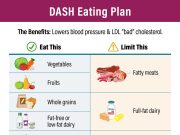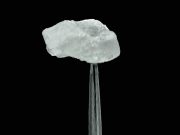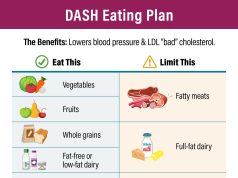In the journey towards achieving balanced nutrition, water often stands as an unsung hero. While much attention is paid to proteins, carbohydrates, fats, vitamins, and minerals, water quietly plays a pivotal role in ensuring our bodies function optimally. Understanding the significance of water in our diet is not just beneficial; it is essential for maintaining overall health and well-being. This article aims to shed light on the profound impact that adequate hydration has on our nutritional balance, helping you appreciate why water deserves a central place in your daily dietary choices. Whether you’re seeking to improve your energy levels, enhance digestion, or support your body’s natural detoxification processes, embracing the importance of water is a compassionate step towards nurturing your body. Join us as we explore how this vital resource can transform your approach to nutrition, empowering you to make informed and healthful decisions.
Understanding Waters Role in Nutritional Balance
Water is not just a thirst quencher; it is a cornerstone of nutritional health. Its role extends beyond hydration, playing a vital part in digestion, absorption, and nutrient transport. Without adequate water intake, the body struggles to process and utilize essential vitamins and minerals. This can lead to nutrient imbalances, impacting everything from energy levels to immune function.
- Digestion Aid: Water helps break down food so that your body can absorb the nutrients. It also dissolves vitamins, minerals, and other nutrients, making them accessible to the body.
- Nutrient Transport: Once nutrients are absorbed, water acts as a transport medium, delivering them to cells and tissues where they are needed.
- Temperature Regulation: Through processes like sweating, water helps maintain body temperature, ensuring enzymes work efficiently to metabolize nutrients.
| Function | Role of Water |
|---|---|
| Metabolism | Facilitates chemical reactions |
| Detoxification | Flushes out toxins |
| Cell Health | Maintains cell structure |
Incorporating sufficient water into your daily routine is essential for maintaining this delicate nutritional equilibrium. Remember, the next time you reach for a glass of water, you’re not just quenching your thirst—you’re supporting a complex system that keeps your body in balance.

Hydrations Impact on Nutrient Absorption and Metabolism
Water is often an unsung hero when it comes to nutrient absorption and metabolism. It plays a pivotal role in breaking down the food we eat, enabling our bodies to absorb essential nutrients efficiently. Without adequate hydration, our digestive system struggles to perform optimally, potentially leading to nutrient deficiencies. This is because water acts as a solvent, helping dissolve vitamins and minerals so they can be transported throughout the body.
- Digestion Aid: Water is crucial for the breakdown of food, ensuring that nutrients are released and absorbed.
- Nutrient Transport: It facilitates the movement of nutrients to cells, ensuring they receive the necessary fuel for energy production.
- Metabolic Boost: Staying hydrated can enhance metabolic rate, helping the body burn calories more efficiently.
| Hydration Level | Impact on Metabolism |
|---|---|
| Optimal | Efficient nutrient absorption and energy production |
| Mild Dehydration | Reduced metabolic rate, potential nutrient deficiencies |
| Severe Dehydration | Significant decrease in nutrient absorption, metabolic dysfunction |
In essence, maintaining proper hydration levels is not just about quenching thirst; it’s about ensuring that our bodies can absorb and utilize nutrients effectively. By prioritizing hydration, we support our body’s metabolic functions, promoting overall health and vitality. Remember, the next time you sip on water, you’re not just hydrating—you’re nourishing your entire system.

Practical Tips for Maintaining Optimal Hydration Levels
Maintaining optimal hydration levels is essential for your well-being, and with a few practical strategies, it can become a seamless part of your daily routine. Start by setting a daily water intake goal. While the classic “8×8” rule (eight 8-ounce glasses a day) is a good baseline, individual needs can vary. Consider factors such as your activity level, climate, and health conditions. Use a water-tracking app or a marked water bottle to monitor your intake throughout the day.
- Start your day with water: Kickstart your metabolism and rehydrate after a night’s rest by drinking a glass of water first thing in the morning.
- Flavor it up: If plain water doesn’t excite you, infuse it with slices of fruits, herbs, or cucumbers for a refreshing twist.
- Eat your water: Incorporate water-rich foods like watermelon, cucumber, and oranges into your meals to boost hydration naturally.
| Hydration Strategy | Benefit |
|---|---|
| Drinking herbal teas | Calming effect, additional nutrients |
| Setting hourly reminders | Consistent hydration throughout the day |
| Using a smart water bottle | Tracks intake, provides reminders |
Adapting your hydration habits can be particularly beneficial during exercise or hot weather, where fluid loss is more significant. Listen to your body—thirst is a clear signal, but don’t rely solely on it. Pay attention to signs like dry skin, fatigue, or dizziness. Staying hydrated is not just about avoiding dehydration; it’s about ensuring your body functions at its best every day.

Choosing the Best Sources of Water for Your Health
When it comes to maintaining balanced nutrition, the quality of the water you consume is just as important as the food you eat. With so many options available, it can be overwhelming to determine which sources are best for your health. Here are some key considerations:
- Spring Water: Often celebrated for its natural mineral content, spring water is sourced from underground springs and is generally considered pure. However, it’s crucial to ensure the source is well-regulated and tested for contaminants.
- Filtered Tap Water: Using a high-quality filtration system can remove impurities such as chlorine, lead, and other harmful substances. It’s a cost-effective and environmentally friendly option.
- Mineral Water: Bottled mineral water contains dissolved minerals that can offer health benefits. Look for brands that provide transparency about their mineral content and source.
Consider the following factors when selecting your water source:
| Factor | Importance |
|---|---|
| Mineral Content | Ensures essential nutrients |
| Source Purity | Reduces exposure to contaminants |
| Environmental Impact | Supports sustainable choices |
Remember, the best water choice aligns with your health goals and lifestyle. By prioritizing quality and purity, you can make a significant impact on your overall well-being.








































